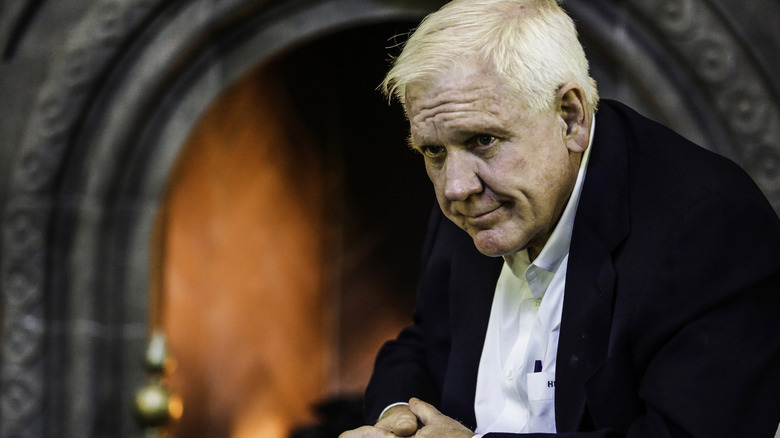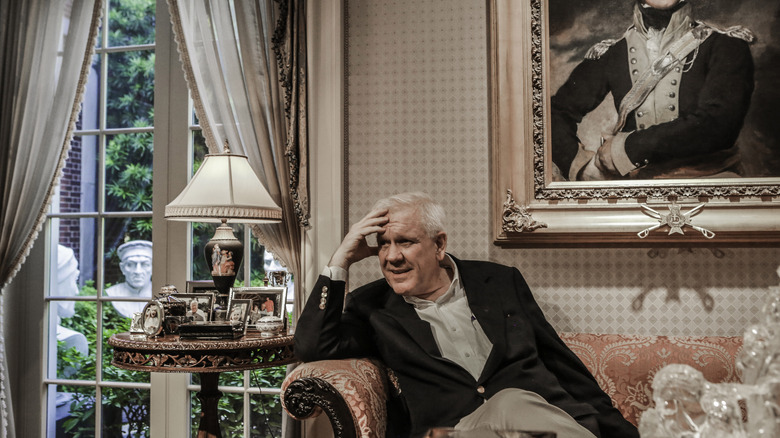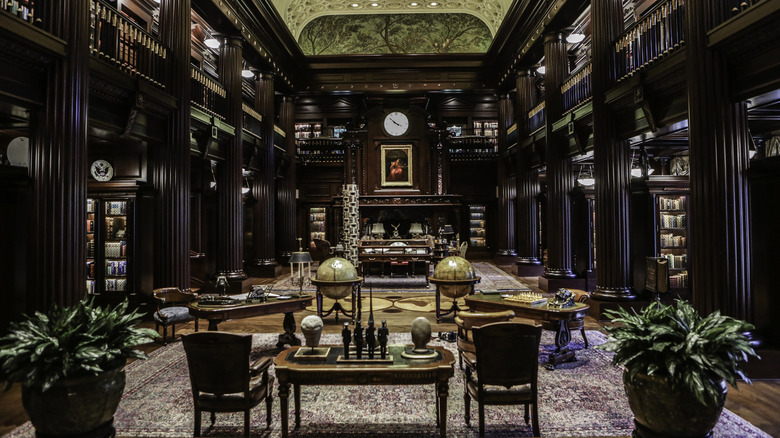The Controversial Billionaire That Owns Many Of Hitler's Paintings And Memorabilia
The businessman Harlan Crow first came to prominence in the late 1980s, when he became involved in the vast real estate empire founded by his father, Trammel Crow, in Dallas, Texas in 1948. Thanks primarily to his success in the real estate business, Trammel Crow is believed to have accrued an immense fortune worth an estimated $500 million, which, in an age before the number of billionaires increased across the globe, made him one of the richest men of his age, and placed him at No. 26 on Forbes' first rich list in 1982. His son, Harlan, has managed the fortune he inherited with aplomb in the decades since, and though sources disagree as to the exact value of his assets, he is often described as a billionaire.
But while Harlan Crow's business acumen has never been in doubt, he has nevertheless grown into a controversial figure in recent years. The magnate has long been one of the most prominent donors to the Republican Party but has come under fire for numerous gifts that he has bestowed on his friend, Supreme Court Justice Clarence Thomas (via Forbes). Crow reportedly paid for numerous luxury holidays for Thomas, and is said to have helped fund his grandnephew's schooling. Critics have claimed that such gifts were not properly disclosed. Harlan Crow has also raised eyebrows after it was revealed that he is a keen collector of historical memorabilia, and has a large collection of items related to Adolf Hitler and the Nazi Party of Germany, with some asking why the billionaire is preoccupied with such a heinous fascist leader.
Harlan Crow's controversial collection
Harlan Crow's vast wealth and strong network among Western business elites have placed him in a position to indulge his passion for collecting both art and historical artifacts. Crow's interests are wide, but several news outlets have highlighted his preoccupation with many of the 20th century's most reviled leaders. Critics point to a collection of sculptures that Crow has grouped in the garden of his mansion, which some have referred to as the "Garden of Evil," which includes resemblances of the communist leaders Lenin, Stalin, Mao, and other tyrants.
The most controversial pieces in his collection, however, are objects closely associated with Adolf Hitler. Crow reportedly owns a signed copy of Hitler's memoir, "Mein Kampf," an anti-Semitic text that outlines the worldview underpinning Nazism. The book is part of a wider collection of Nazi objects and personal effects, including two landscape paintings Hitler made while he was attempting to begin a career as an artist. Though the paintings are undoubtedly of historical significance, experts in the craft of painting have typically derided Hitler's artistic skills.
Facing criticism
Harlan Crow's vast collection of paraphernalia from the extremes of the political spectrum has been the subject of criticism and bafflement for more than a decade, with guests to his family's Dallas mansion providing testimony to the press describing the questionable displays. Crow, however, maintains that his interest in fascism is purely historical, that he hates both fascism and communism and that the objects in his collection, including the statues in the "Garden of Evil," are intended as warnings from history that good triumphs over evil.
The Daily Beast's David Frum, who has visited Crow's immense collection, argues that continuous criticism of the billionaire for possessing objects linked to fascists is misguided and that the objects make up just a small portion of a collection that is dominated by a vast library and Americana. "To record is not to endorse," Frum points out, and it must be said that even Crow's "Garden of Evil" and his numerous statues of tyrants are accompanied at the property, for example, by another garden celebrating the Italian Renaissance with busts of figures such as the epic poet Dante. Meanwhile, Dallas News notes that Crow's mother, Margaret, survived the sinking of the SS Athenia in a Nazi attack, suggesting he would be unlikely to be sympathetic to the German fascist movement.


